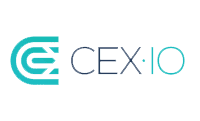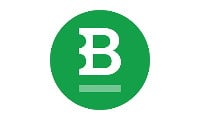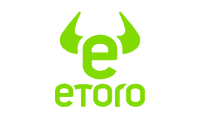The Best Bitcoin and Cryptocurrency Exchange Guide
By: Alexander Reed | Last updated: 2/20/24
Choosing the best cryptocurrency exchange can be an exhausting task. This post will explain the important factors to take into account when choosing an exchange. I will also give you a review summary of the leading cryptocurrency exchanges around.
Don’t like to read? Here’s a 2-minute video of this guide:
Best Bitcoin and Cryptocurrency Exchange Summary
Here are my top picks for the best cryptocurrency exchange by category:
The main things to look for when choosing an exchange are:
- What type of exchange is this? (Broker, trading platform, etc.)
- Does this exchange support the coins I want to trade?
- Does this exchange accept users from my country?
- Does this exchange accept my payment method?
- What are the fees and buying limits for the exchange?
Finally, before deciding on an exchange, make sure to read several online reviews to get a feel of the exchange’s reputation. That’s how to choose an exchange in a nutshell.
If you want a more detailed explanation of cryptocurrency exchanges and detailed reviews, keep reading this post. Here’s what I’ll cover:
- How to Convert Cryptocurrency to Real Money/Cash
- Types of Exchanges
- What are the Best Bitcoin and Crypto Exchanges?
- Exchange Features
- KYC
- Conclusion and Exchange Review Summary
1. How to Convert Cryptocurrency to Real Money/Cash
Cryptocurrency exchanges are companies that allow you to exchange “real money” (i.e., USD, EUR, GBP, etc.), also known as fiat money, to cryptocurrencies like Bitcoin or Ethereum and vice versa. The exchange is a website that helps you facilitate this trade.
But not all exchanges are equal…
2. Exchange Types
It’s important to understand that not all cryptocurrency exchanges are alike. Some allow you to trade with other users, while other exchanges will only sell you cryptocurrency directly. Some will not even give you the actual coins but will only allow you to speculate on the price.
Let’s break down the different types of exchanges.
Brokers
Brokers are sites that simplify the buying process by allowing you to buy coins through them directly at a premium. When you buy from broker sites, the process is usually much simpler and less confusing, but it’s also more expensive.
Examples of reputable brokers: Coinmama, and Coinbase.
Trading platforms
Trading platforms are sites that connect buyers with sellers anonymously in an automated form. This means that you buy from people who’ve placed sell orders on the site without ever communicating with them directly. The platform usually takes a small fee for the service.
Conducting transactions on trading platforms is usually the cheapest way to get bitcoins or other coins, but often it’s not very user-friendly. Trading platforms have advanced options, such as limit-orders and stop-losses, that can confuse inexperienced users.
Also, when you place an order, it may not be fulfilled immediately due to a lack of sellers at the price at which you want to buy.
Examples of reputable trading platforms: Binance, and Bitstamp.
Some trading platforms allow you to trade CFDs (Contracts for Difference). This means you’re basically betting on the price of the coin in the future instead of actually owning it.
While CFDs are very appealing due to their ease of use, they don’t allow you possession of the actual coins. The process is the equivalent of betting on the fact gold will rise in price instead of actually buying gold.
You won’t be able to withdraw the cryptocurrency you bought into your wallet. The only thing you’re doing is buying (or selling) a contract regarding the coin’s price in USD, EUR, or some other form of government currency.
CFDs also allow you to leverage your bets by borrowing money from them (also known as margin trading). While this can give you a great upside for successful trades, it also holds a lot of risk of losing your money very quickly.
Bottom line – CFDs are very risky and are more suitable for experienced traders.
One example of a known CFD broker is eToro. Read our full review here.
Note: CFD trading is currently illegal in the U.S.
Cross-Asset Class Platforms
Some trading platforms offer assets from multiple different asset classes. Such platforms typically offer major cryptocurrencies alongside assets such as stocks, commodities (including precious metals), and foreign currencies. These platforms make it easy to trade between all types of assets within a single app. This is useful for traders who wish to easily shift some of their portfolios from different asset classes to crypto and vice versa.
Examples of cross-asset platforms: Uphold, Bitpanda, and eToro.
P2P platforms
P2P (Peer-to-Peer) platforms connect buyers and sellers directly so they can negotiate on a price. While these sites usually allow for a wider array of options (payment methods, supported countries, etc.), they also hold a large amount of risk because you’re buying from an unvetted individual.
Examples of reputable P2P platforms: LocalCoinSwap, and Paxful.
3. What are the Best Bitcoin and Crypto Exchanges?
What Are the Best Bitcoin and Crypto Brokers?
CEX.IO
CEX.IO was established in 2013. CEX.IO supplies users with both a brokerage service and a trading platform for several cryptocurrencies. The company also accepts all major credit cards for purchases through its brokerage service. You can read my full CEX.IO review here.
Coinmama
Coinmama is one of the oldest cryptocurrency brokers around, with very responsive customer service. The company allows you to buy and sell Bitcoin and other cryptocurrencies through the use of a credit and debit card, Skrill, Neteller, or SEPA transfer. They also accept Apple Pay and Google Pay. Their services are available worldwide, with the exception of a few countries. You can read my full Coinmama review here.
Coinbase
Coinbase is probably the most popular company today for buying cryptocurrency in the US. Coinbase offers a brokerage service as well as a trading platform (known as Coinbase Advanced Trade). Their fees are considered to be competitive, and their services are available to over 100 countries worldwide. You can read my full Coinbase review here.
Bitpanda
Bitpanda is an Austrian company that was founded in October 2014. The company allows you to buy cryptocurrency with a debit card, credit card, Apple Pay, as well as with wire transfers, Neteller, Skrill, SEPA, and more. There is a minimum deposit and withdrawal amount of 10 EUR.
You can deposit nine major fiat currencies at Bitpanda: the Euro, US dollar, Swiss franc, British pound, Swedish krona, Hungarian forint, Czech koruna, Polish zloty, and Danish krone.
There are no fees for depositing Swedish krona (SEK) via Visa or Mastercard.
The company supplies its services to European countries only at a relatively low fee. You can read my Bitpanda review here.
What are the Best Cryptocurrency Trading Platforms?
Binance
Binance is a Bitcoin and cryptocurrency exchange that offers a trading platform with one of the most competitive rates around. If you’re looking to trade crypto to crypto only, this is probably the easiest and cheapest way to go. The exchange accepts users from around the world and allows the purchasing of coins with a credit card in certain countries as well (a sort of brokerage service). You can read my full Binance review here.
Luno
Luno is a cryptocurrency exchange aimed mainly at emerging markets. Luno offers Bitcoin services to countries such as Malaysia, Nigeria, and Indonesia, which are usually not allowed on most Bitcoin exchanges. It also serves more established markets such as France and the UK. The site supports only a handful of coins, including Bitcoin, Ethereum, XRP, Bitcoin Cash, Chainlink, Solana, and Litecoin. You can read my full Luno review here.
Bitstamp
Bitstamp is the oldest Bitcoin exchange out there. Founded in 2011, Bitstamp has managed to survive most of the Bitcoin ecosystem’s turmoil without being hacked or shut down, and that’s definitely saying something. If it wasn’t for its unintuitive user interface and previous lack of convenient payment methods, Bitstamp may have been the perfect exchange. You can read my full Bitstamp review here.
Coinbase Advanced Trade
Coinbase Advanced Trade is the companion trading platform for Coinbase’s brokerage service. Coinbase’s users can use the same account details to log in directly to Advanced Trade. Funds are transferred across both platforms. The exchange supports the trading of a wide range of assets, including BTC, ETH, LTC, BCH, and SOL. You can read my full Coinbase review here.
MEXC
Mexc is a popular crypto exchange that offers low fees on thousands of trading pairs. It provides high leverage limits on perpetual futures markets. Contracts can be settled in USDT or the underlying crypto. 200x leverage is offered on large-cap cryptocurrencies like Bitcoin, Solana, Ethereum, and Dogecoin. You can read my Mexc review here.
Webull Bitcoin Trading
Webull is a New York-based stock trading app that acts as a broker for crypto, stocks, and exchange-traded funds (ETFs). It offers a brokerage service for Bitcoin and cryptocurrencies through a company called Bakkt (formerly Apex Crypto).
When you trade crypto through Webull, there are no explicit “fees.” However, a 100 basis point (1%) mark-up is built into all trades. You won’t be able to deposit or withdraw crypto from your account, but Webull does make it easier to trade Bitcoin with fiat than managing a crypto exchange account and/or third-party wallet yourself.
PrimeXBT
PrimeXBT is also a contracts trading platform, which allows users to speculate on asset prices rather than purchase the coins themselves. The platform provides markets for dozens of cryptocurrencies with up to 100x leverage, including BTC, ETH, LTC, XRP, SOL, DOGE, and EOS. Account balances and trades are all funded with Bitcoin only. You can read my full PrimeXBT review here.
What Are the Best Bitcoin and Crypto P2P Platforms?
LocalCoinSwap
LocalCoinSwap brings buyers and sellers together in a marketplace for a range of coins, including BTC and Ethereum. It’s unique in that you can transact in almost any method imaginable, including PayPal, wire transfer, Western Union, WebMoney, credit and debit cards, and cash, with a 1% sell fee. You can read my full LocalCoinSwap review here.
Bitget
Bitget is a popular cryptocurrency exchange and copy-trading platform which has been around since 2018. It provides spot trading and futures trading but is most famous for allowing users to copy other traders.
Bitget users can purchase crypto outright using a debit or credit card, either directly or via a third-party payment processor such as Simplex, Banxa, or Mercuryo.
What Are the Best Cross Asset Class Platforms?
eToro disclaimer: This ad promotes virtual cryptocurrency investing within the EU (by eToro Europe Ltd. and eToro UK Ltd.) & USA (by eToro USA LLC); which is highly volatile, unregulated in most EU countries, no EU protections & not supervised by the EU regulatory framework. Investments are subject to market risk, including the loss of principal.
76% of retail investor accounts lose money when trading CFDs with this provider. You should consider whether you can afford to take the high risk of losing your money.
CFDs are not available to US customers.
Don’t invest unless you’re prepared to lose all the money you invest. This is a high-risk investment and you should not expect to be protected if something goes wrong. Take 2 mins to learn moreUphold
Uphold is a platform that offers an easy way to invest in crypto, precious metals, and foreign fiat currencies. It provides a simple user experience that is beginner-friendly, without candlestick charts or order books. The Vault is Uphold’s latest feature. The company describes it as a groundbreaking ‘Assisted’ Self-Custody solution seamlessly integrated within its centralized trading venue. Vault will initially be exclusively available for XRP only. However, it is set to go live with support for additional assets in 2024. You can read more about the Vault and Uphold in my full review here.
Bitpanda
Bitpanda – also featured above in the brokers’ section – has become well-known for offering stocks, exchange-traded funds (ETFs), and metals in addition to cryptocurrencies. The platform even offers the ability to spend your balances of any asset class via its Visa Bitpanda Card and Bitpanda app. You can read my full Bitpanda review here.
eToro
**Content does not apply to US users
eToro is one of the most well-known investment platforms in the world, with more than 30 million users around the globe. Although it’s not the easiest platform to withdraw your crypto from, it provides trading for a massive range of assets and asset classes, including hundreds (if not thousands) of commodities, indexes, stocks, cryptocurrencies, and more. You can read my full eToro review here.
4. Exchange Features
Next, you’ll need to inquire about the different features of each exchange. Here are the most important ones:
Coins supported: Does the exchange support the type of coin you’re looking to buy and sell? What currency pairs does it offer for that coin? (i.e., what coins can you trade it for?) For example, an exchange offering a BTC/USD currency pair supports the buying and selling of Bitcoins for US Dollars.
Countries supported: Not all exchanges accept customers from all around the world. Make sure the service is available in your country.
Asset classes supported: Does the platform offer additional asset classes that you’re interested in, if any? Some platforms are crypto-only, while others offer additional assets, such as stocks and commodities. The latter may be more convenient for multi-market traders.
Accepted payment methods: Some exchanges accept a wide variety of payment methods, while others accept only wire transfers. Payment methods that allow buyers to request their money back, such as credit cards or PayPal, will usually involve higher fees. This is done to insure the seller in case you cancel the payment after you get your coins. As you might expect, payment methods that can’t easily be reversed, such as wire transfers, are usually cheaper.
Fees: There are three kinds of fees: Deposit fees, transaction fees, and withdrawal fees. Each fee is usually different and can affect the total amount of money you’ll receive in the end. Make sure you’re aware of all of them.
Exchange rate: Some exchanges have low fees, but their exchange rates are higher relative to the competition. This means that the fees are sort of “hiding” in the exchange rate. This is more typical with brokers. Again, make sure you are aware of the numbers. Do your own calculations before committing to any purchase or trade to make sure you’re getting the deal you want.
Buying limits: Your buying limit will depend on your payment method and, in some cases, your identity verification level. Not every exchange or broker requires identity verification. If you’re looking to buy a large amount of Bitcoin, some exchanges might not be relevant due to their low limits. Shop around.
Exchange reputation: Is the exchange well known in the community? How responsive is its support in the event you get lost in the process? Have there been a large number of complaints against the exchange? Has it been hacked in the past? Keep in mind that no exchange is free of negative reviews, but it’s important to consider the volume and the content of those reviews.
Here’s a video we made that sums up all of the above:
Resource section for the video can be found here
5. KYC
Many exchanges today have a Know-Your-Customer process, also known as KYC, that you’ll have to go through before buying any coin on the exchange.
This means you’ll need to supply the exchange with some additional information, such as your ID, proof of residency, and, in some cases, even proof of income. As Bitcoin and crypto become more and more mainstream, exchanges are subject to stricter regulations by local governments, and in many cases, they’re unwillingly forced to request this information from you.
This is not something personal and will probably be required by most legit exchanges. In fact, I’d be suspicious if an exchange didn’t request this information. If you’re keen on maintaining your privacy, you can read our guide about how to buy Bitcoin anonymously.
6. Conclusion
You now know the most important aspects to look for when choosing your crypto exchange. In the end, the main thing that matters is that the company (or seller) is reliable and that you’re happy with the price you’re paying. Sometimes, it’s worth it to spend a bit more money in order to finish the process hassle-free.
Personally, here are my top picks for exchanges by categories:
- Coinbase / Coinbase Advanced Trade (Broker / Trading platform)
- Bitstamp (Trading platform)
If you’ve had any good or bad experiences with the exchanges listed above, or any other exchange, I’d love to hear about it in the comment section below.













I would love to see Bitcoin-only businesses included in this post like Swan or River in the US, and non-custodial, Bitcoin-only platforms like Beaver Bitcoin and Bull Bitcoin in Canada.
I believe that Crypton exchange has a fast and reliable trading engine that can handle high volumes of trades without any downtime or disruptions. This ensures that users can trade cryptocurrencies quickly and efficiently, without having to worry about platform issues or delays.
I bought Bitcoin on Cash App back in June 2021 not knowing what I was doing. The company is now owned by Block Inc. What do you know about this company and how do you rank it?
Hello LJ, Cash App is a mobile payment service owned by Square Inc., not Block Inc. Square acquired Cash App in 2021.
As for ranking the company, it’s difficult to give a definitive ranking as it depends on various factors such as the individual’s personal opinions and financial goals. However, Square is a publicly traded company and has been successful in the financial technology industry, with a strong brand recognition and a growing customer base. The company has also expanded its offerings beyond just Cash App to include other financial services.
As for Bitcoin, it is a decentralized digital currency that operates independently of central banks and has seen significant price fluctuations, making it a high-risk, high-reward investment. If you’re considering buying or selling, it’s important to carefully consider your investment goals and to thoroughly research the potential risks and rewards before making a decision.
I just closed my Coinbase account. They put my Schwab checking account on security advisory! They lowered my cash limit to $250/week! The cash limit for that same account’s debit card was $100 weekly. For me, Coinbase is totally useless.
I had a similar experience I think. I just waited patiently and it all worked out.
What is your opinion of using NDAX to trade bitcoin?
While Bitcoin technology is pretty safe, it isn’t anonymous, but Bitcoin can also be traded anonymously. Have you heard anything about the Crypton Exchange from the Utopia p2p? It is one of the most independent and private exchanges.